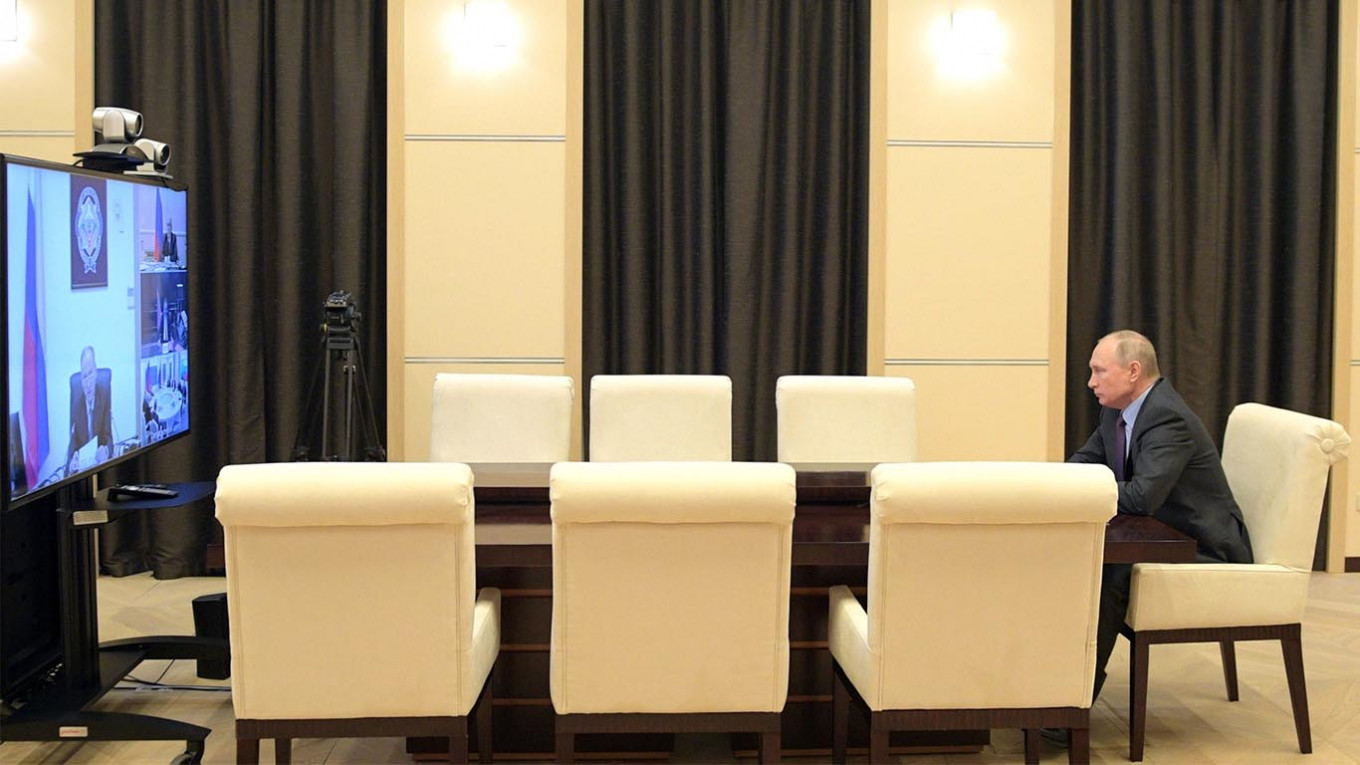The Kremlin faces the dual task of scaring Russians into self-isolation during the coronavirus pandemic while also tamping down public fears about the virus, the Kommersant business daily reported Monday.
Most Russian regions have ordered lockdowns similar to Moscow’s in recent days as President Vladimir Putin declared April a “non-working” month to encourage self-isolation during the pandemic. Federal officials have imposed stiff fines and prison terms of up to seven years for violating quarantine rules.
The presidential administration and Moscow City Hall can “deliberately intimidate” those who ignore restrictions imposed due to the coronavirus outbreak, Kommersant cited unnamed sources as saying. Examples of this policy include a recent announcement that 40% of patients on ventilators were under 40 years old.
“It doesn’t work otherwise. It’s the same in other countries,” the newspaper quoted an unnamed source as saying.
At the same time, the presidential administration is reportedly involved in efforts to prevent panic in industrial regions that could result in an even bigger hit to the economy, Kommersant cited two unnamed sources as saying.
“The epidemic of panic is much worse than the virus epidemic,” an unnamed source within the administration was quoted as saying.
“If you can scare the urban population on whom industry does not depend, then [doing the same in] an industrial region can lead to a halt in production,” that source said.
Russia has reported a total of 6,343 coronavirus infections and 47 deaths as of Monday.
The country’s infection rate and sociological research both guide the Kremlin’s and the Moscow City Hall’s decision making on further steps, according to Kommersant’s sources.
Authorities could declare a nationwide state of emergency if Russians fail to abide by their regions’ lockdown guidelines during the first two weeks of “non-working” April, Kommersant reported.
The Kremlin’s best-case scenario reportedly envisions limiting the spread of the virus by the end of May or early June.
A Message from The Moscow Times:
Dear readers,
We are facing unprecedented challenges. Russia's Prosecutor General's Office has designated The Moscow Times as an "undesirable" organization, criminalizing our work and putting our staff at risk of prosecution. This follows our earlier unjust labeling as a "foreign agent."
These actions are direct attempts to silence independent journalism in Russia. The authorities claim our work "discredits the decisions of the Russian leadership." We see things differently: we strive to provide accurate, unbiased reporting on Russia.
We, the journalists of The Moscow Times, refuse to be silenced. But to continue our work, we need your help.
Your support, no matter how small, makes a world of difference. If you can, please support us monthly starting from just $2. It's quick to set up, and every contribution makes a significant impact.
By supporting The Moscow Times, you're defending open, independent journalism in the face of repression. Thank you for standing with us.
Remind me later.






